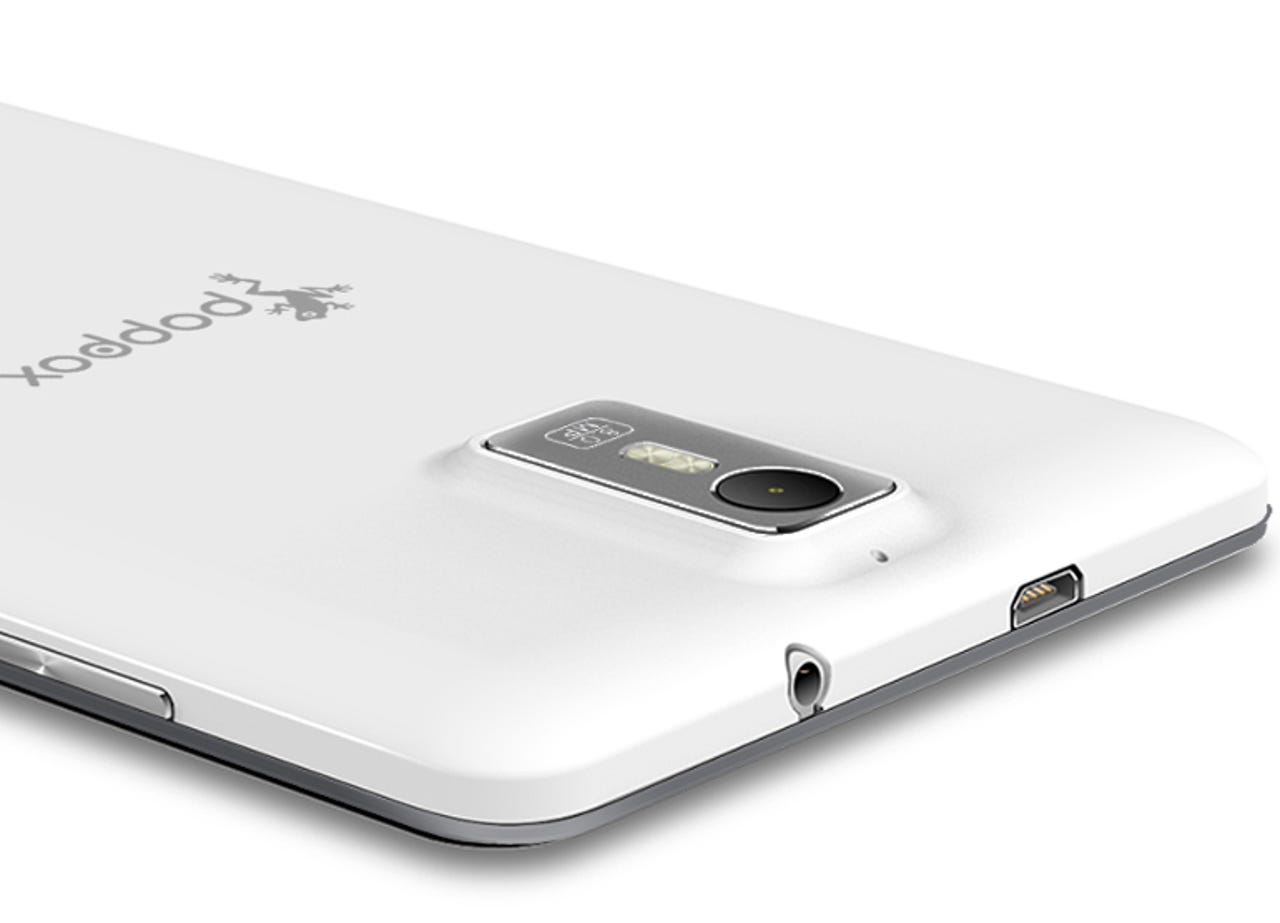Homage to Catalonia: How Spain's north-east smartphone heartland is taking on Apple, Samsung, Chinese giants


Poppox's Android P1 launched last August as a "stylish, lightweight and powerful" 4G smartphone, with an emphasis on customer service.
Lower-cost smartphones bearing a label showing they're from Spain's north-eastern region of Catalonia have carved out a niche in the country's mobile market, and possibly even further afield.
Since Spanish operators stopped subsidizing handsets in 2012, consumers have become increasingly keen on getting basic features at low prices, rather than shiny branding.
Unsurprisingly, their basic requirements seem to be a phone capable of instant messaging, social networking, and offering a decent camera for selfies, all at a reasonable price. After all, a device's appearance can always be improved with a fashionable case.
This niche is precisely what some small Catalan and Spanish companies are targeting to gain market share in a very competitive sector, where Chinese brands such as Huawei, Xiaomi, and Lenovo, are gaining ground.
A crazy idea? Esteban Redolfi, executive director at digital startups event 4YFN, held in Barcelona last month, does not think so.
"Spain, and Catalonia in particular, has the potential to become a leading region in the production of mobile devices. This can be achieved by selling at more competitive prices than the big brands and customizing most of the device, the parts, design, and services," he tells ZDNet.
"These brands have a highly-developed customer service, which is a key factor for their success, and a great deal of investment in innovation, allowing them to evolve their products at a very high rate," he adds.
Poppox CEO Jordi Serra agrees that customer service helps his company "sell a lot".
"Customers want solutions to problems, not just products," he says.
The firm, based about 40km from Barcelona in Mataró, was set up in early 2014, with the aim of developing a "stylish, lightweight, and powerful" 4G smartphone, with a dedicated customer service.
In August 2015, it launched the Android P1 model, featuring a 1.5GHz 64-bit quad-core MediaTek MT6732, 1GB RAM, 16GB ROM, a 5.5-inch screen, and an eight-megapixel camera for €199 ($225). In April, Poppox plans to launch the new P2, with more features and a higher price.
Miguel Angel Fuertes, CEO of Leotec, is "very comfortable" with selling low-cost devices. His company is based in Cornellà de Llobregat, 15km from Barcelona, and has been producing Spanish multimedia devices for 14 years.
"People tend to think they're devices aimed at emerging markets. But nothing is further from reality. The low-cost smartphone market is increasingly important in Europe and the US, as users realize these devices have similar features to those promoted by the big brands, so the experience will also be similar," he says.
However, Leotec smartphones, price at between €79 and €199 ($89 and $225), do not claim to be the cheapest in the market.
"We realize that our differential value is in a quality of technical support," Fuertes says.
But is this business model sustainable? How can these Spanish startups compete with big brands such as Samsung and Apple, and the Chinese makers?
The formula is simple, according to Fuertes. "We make smartphones with a more than acceptable quality, at Chinese prices. This is achieved by controlling the manufacturing process from the beginning. And again, the key to our business lies in our technical service. Moreover, we don't run big marketing campaigns, and this allows us to adjust costs," he says.
Poppox's Jordi Serra also sees the firm's customers as its best advertising campaign. "Oddly enough, word of mouth still works," he says.
Nevertheless, the company also employs orthodox marketing and has sought product placement in a local television series. "After that, we'll see," Serra says, who is not thinking about going international yet.
In contrast, Leotec's Fuertes says his company has been present in Latin American since 2013, particularly in Peru, and plans to expand into the continent gradually.
Other offerings, such as PuzzlePhone, started with one foot outside Spain. PuzzlePhone straddles Barcelona and Oulu in Finland, which is like "Silicon Valley in the Nordic countries but closer and friendlier", according to Alejandro Santacreu, CEO and founder of the company.
In Finland, Santacreu says, "The legacy of Nokia is noticeable and it is easier to find professionals with experience in the development and manufacture of mobile phones."
PuzzlePhone has developed a phone with three easy-to-change modules: the brain, consisting of the processor and the camera; the heart, which includes the battery and electronics support; and the spine, the high-res display.
This configuration makes upgrading and repair much easier if something breaks. Santacreu says the idea came from the inability to repair the button on an iPhone.
"It makes no sense that smartphones, which are now our identity and window to the world, cannot be repaired and upgraded", he says.
PuzzlePhone also wants to contribute to the reduction of e-waste by extending the life of smartphones and simultaneously allowing reuse of functional modules in other applications. Use, reuse, and recycle: that's the basis of the so-called circular economy, according to PuzzlePhone.
Its prototype was presented at 4YFN 2015, and in November and December last year the company ran a crowdfunding campaign, with the first units of the modular phone to be delivered to those who have supported it.
Santacreu says the international aspect is there from the beginning of the project. "A product like ours must have a presence in countries that are more receptive to the concept of circular economy," he says.
In the international market, Google has been working with the modular-phone concept through the Project Ara and, in Amsterdam, Fairphone is also promoting a modular design.
Santacreu acknowledged that Barcelona is important in the development of the product because the company behind it, Circular Devices, has a team that operates from the Catalan capital.
"[But] this project could hardly have been developed in Spain or Barcelona, because the level of institutional support existing in Finland is not available in Spain," he says.
Yet, Jordi Puigneró, director general of telecommunications and information society for the Catalan government, argues that its efforts to attract events such as Mobile World Congress, the Smart City Expo World Congress, and IoT Solutions World Congress have helped make Catalonia a reference location for these technologies.
"[They have] turned it into a highly recommended place for the installation of ICT companies in general and for one focused in the mobile and 'smart' sector in particular," he says.
Its government is committed to turning Catalonia into "a reference data-processing center in Southern Europe, with significant investments to attract the world's main datacenter companies ".